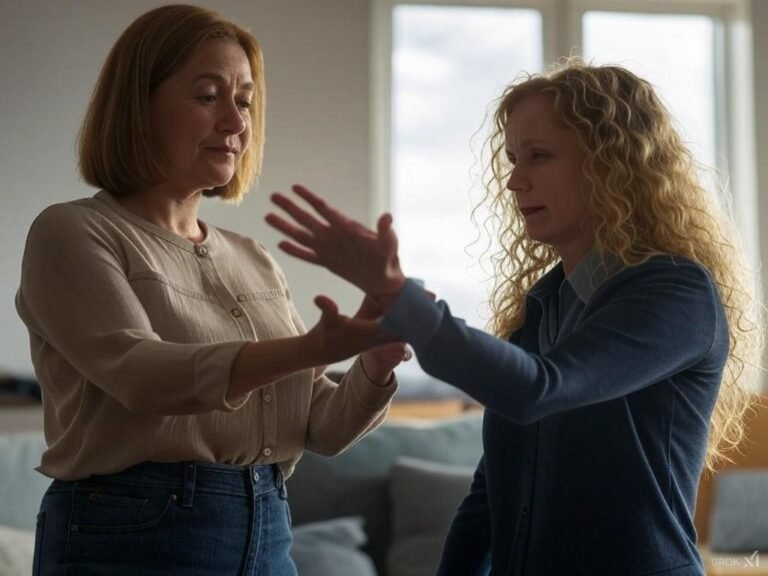
January 4, 2025
Coach G
1 Comment
Life has a way of presenting us with people we deeply love but cannot save. It might be a son spiraling into choices that hurt him, a daughter unable to see her worth, or simply consumed by alcohol and anger, or a friend trapped in a loop of self-destruction. As much as we extend our hand, speak our truth, and pour unconditional love into their lives, there comes a moment of reckoning, a moment where we must learn to let go.
Letting go does not mean giving up. It means honoring someone’s reality, their path, and the lessons they are calling upon themselves. It means understanding that while we can try to ignite change within someone, we cannot force them to see what they are unwilling (or not ready) to see.
The Pain of Watching Someone Suffer
Few things are as heartbreaking as watching someone we love repeatedly hurt themselves. They might be stuck in toxic relationships, harmful habits, or cycles of self-sabotage. From the outside, it seems so clear: if they would only make a different choice, they could break free.
But for them, the pull of their patterns is overwhelming. The darkness they’re in often feels safer than the unknown of change. And so, they remain.
Why We Feel Responsible
When we love someone, we naturally want to protect them. This instinct is particularly strong in parents, who often feel that their children’s pain is their failure. But the truth is, no amount of love, guidance, or intervention can change someone who doesn’t want to change.
Trying to take responsibility for someone else’s path only leads to frustration, resentment, and guilt. It also denies them the opportunity to learn from their experiences, the very lessons their soul may need to grow.
The Truth About Free Will
Every person is on their own journey, governed by free will. This is a divine gift, one that even the greatest love cannot override. And nobody can go over the boundary of someone’s free will without paying the price, no matter how the payment will be collected in this life. Trust me, the universe will make this clear to you one way or another.
Respecting Their Journey
Each of us calls certain lessons into our lives to grow, evolve, and align with our higher selves. For some, those lessons come through joy; for others, they come through suffering. It is not for us to decide how someone should learn—only they can make that choice.
When we try to pull someone out of their darkness, we are essentially trying to rewrite their path. But no matter how much we want to save them, they must walk their journey, face their lessons, and ultimately choose their own transformation. Your job is to stay the Light, Observe without judgment and rise above the chaos as the beacon they might need to recognize one day.
Letting Go Without Guilt
Letting go becomes easier when we understand this: if every word and action we’ve offered came from a place of unconditional love, we have done our part. There is no guilt in stepping back when we’ve given all we can. Instead, there is compassion—a compassion that frees both us and them.
How Letting Go Heals Us and Them
1. Breaking the Cycle of Co-Dependence
When we hold on too tightly, we risk becoming entangled in their suffering. Their pain becomes our pain, and instead of helping, we end up hurt and depleted. Letting go allows us to preserve our own energy, which we can then use to create a space of healing and peace—something they may be drawn to when they’re ready.
2. Trusting the Divine Timing
Letting go is an act of faith. It is trusting that the universe, God, or whatever name you give the divine, has a plan far greater than ours. They will be shown what they need to see, in the time they are ready to see it.
3. Offering True Freedom
By letting go, we release the need to control. This freedom allows them to make their own choices, even if those choices lead to pain. It is in this freedom that true growth can occur—on their terms, not ours.
Examples of Letting Go
A Parent and a Struggling Child
A mother watches her son fall into addiction. She pleads, reasons, and intervenes, but nothing changes. Finally, she realizes her efforts are enabling him. She steps back, letting him face the consequences of his choices. Though it breaks her heart, she trusts that he will find his way. And one day, he does—because the space she gave him allowed him to take responsibility for his own life.
A Friend in a Toxic Relationship
A woman’s best friend remains in an abusive relationship despite countless conversations and support. The woman decides to let go—not of her love for her friend, but of her need to rescue her. She makes it clear she’s always there, but stops trying to fix the situation. Over time, her friend begins to see the truth on her own, eventually finding the strength to leave.
How to Let Go with Love and Compassion
1. Acknowledge Their Free Will
Understand that their choices are theirs to make, even if those choices lead to pain. Respecting their autonomy is an act of love.
2. Reflect on Your Intentions
Ask yourself: Have I acted out of unconditional love? If the answer is yes, release the guilt. You’ve done your part.
3. Shift from Guilt to Compassion
Instead of feeling guilty, choose compassion. Recognize their struggle and hold space for their growth, without trying to control the outcome.
4. Trust the Divine Plan
Have faith that the universe is guiding them. They will face the lessons they need, in the time and way they are ready.
5. Focus on Your Own Path
Redirect your energy toward your own growth and healing. This not only empowers you but also sets an example of strength and resilience for others.
A Path of Hope
Letting go does not mean abandoning hope. It means trusting that love, even when it steps back, remains powerful. It means believing that the divine will guide them to the lessons they need, and that those lessons, no matter how painful, are part of a greater plan.
For those struggling to let go, remember this: You are not failing them by stepping back. You are honoring their journey and your own. You are freeing yourself from the burden of control and allowing compassion to take its place.
Sometimes, letting go is the greatest act of love we can offer.
May we all learn to let go with grace, love, and faith in the divine plan.
Let’s Keep the Growth Going
You’ve come this far for a reason. Stay connected and receive insights that meet you where you are—right in your inbox.
- Join our Newsletter -
Share:
Categories
Popular Posts
Don’t Fall in Love. Rise in Love.
January 22, 2026
Tags
Book Summary
Coach G
Coaching
consciousness
ego
Emotional Healing
Emotional Intelligence
Emotional Resilience
empowerment
faith
forgiveness
Growth Mindset
healing
Inner Peace
law of attraction
letting go
life coach
life coach Dubai
Life Coaching
Life Coaching Dubai
Manifestation
marriage
Mental Health
Mindfulness
Mindset Shift
oneness
Personal Development
personal growth
Personal Transformation
Positive Mindset
productivity
quantum psychology
relationships
Resilience
Self-Awareness
Self-Discovery
Self-Improvement
Spiritual Awakening
spiritual coach
spiritual growth
spirituality
Success Mindset
Time Management
Transformation
Universal Laws
Useful Links
Quick Menu
Contact Us
- +971585541780
- info@coach-g.com
- Al Murjan tower, Al Marsa Street Dubai Marina
© 2025 Coach G Dubai. All rights reserved.




